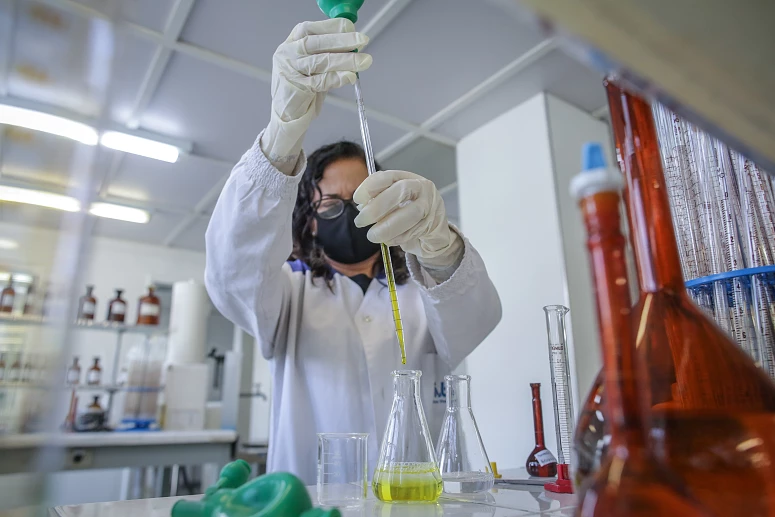The Oswaldo Cruz Foundation (Fiocruz) announced today the signing of an agreement to establish a Sino-Brazilian Infectious Disease Research and Prevention Center (IDRPC) with an emerging infectious disease center in China.
In a statement, Fiocruz said the project with the CAS-Twas Center of Excellence for Emerging Infectious Diseases (CEEID) in China also involves the Institute of Microbiology of the Chinese Academy of Sciences (CAS).
The new scientific research center for infectious diseases will have one headquarters in Beijing and another in Rio de Janeiro.

It will act to “strengthen cooperation in the area of health-related science and technology, with a focus on the prevention and control of pandemics and epidemics such as covid-19, influenza, chikungunya, zika, dengue, yellow fever, oropouche, and other infectious diseases such as tuberculosis.”
In addition, the partnership will also seek to develop global health public goods such as rapid diagnostic tests, therapies, vaccines, and pharmaceuticals.
The formalization of the agreement occurs on the occasion of the first visit of Brazilian President Luiz Inácio Lula da Silva to China after his inauguration, highlighting the rapprochement between the two countries.
According to Fiocruz, cooperation had been in the pipeline since before the Covid-19 pandemic but was delayed due to health emergencies and political issues.
“With President Luiz Inácio Lula da Silva’s election and the rapprochement of Brazil and China, the memorandum of understanding has taken new momentum, showing that the two countries’ relations can deepen in the area of health,” the Brazilian institution said.
“Sino-Brazilian cooperation in science and health reaches another level with this agreement.”
“The joint research on infectious diseases in Chinese and Brazilian laboratories, the permanent exchange of experiences and knowledge, and the even greater qualification of epidemiological surveillance are all gains with the strengthening of our science and further capacitate the countries in preparation for new sanitary emergencies, which are increasingly common,” stressed the president of Fiocruz, Mario Moreira.
Moreira also stressed in the statement that Fiocruz shares with CAS and the World Academy of Sciences (Twas) the view of health goods as public goods, such as vaccines, medicines, and diagnostic tests.
“The development and production of these goods need to be decentralized and serve to strengthen health systems to reduce global vulnerability. Let’s walk together in this direction that strengthens the international position of Fiocruz,” he said.
The note highlights that the agreement provides for forming a working group to implement the center in both countries.
Fiocruz informed that each headquarters would work with researchers from both nationalities.
Basic research, clinical research, training and research, international communication, and exchange of researchers will be developed in them.
“This agreement strengthens cooperation in public health,” commented Shi Yi, executive director of CEEID, who mediated the series of seminars between Fiocruz and CAS last year.
Some diseases that will be studied affect both countries, such as covid-19.
Others affect Brazil more, such as yellow fever, which has been attracting Chinese interest due to the increase of Chinese infrastructure works in Africa, where some of its workers have contracted the disease that Fiocruz produces the vaccine.
On the other hand, the Brazilian organization recalled that China and India produce a large part of the active pharmaceutical ingredient used worldwide, and the South American country can benefit by strengthening ties with these partners.
With information from Lusa

